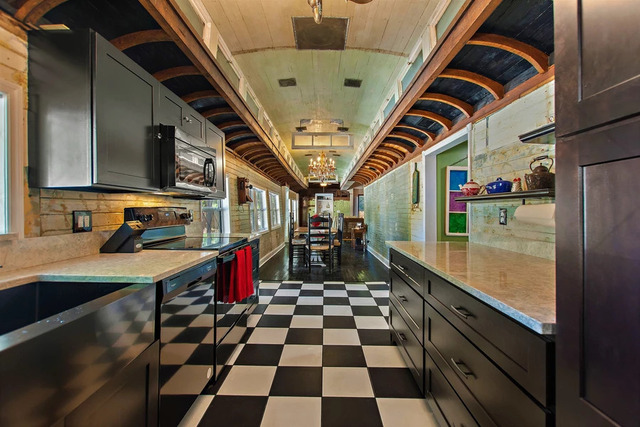OCALA NATIONAL FOREST
OCALA NATIONAL FOREST325 John Knox Rd
Tallahassee, Florida 32303
Phone:
904-942-9300
The Ocala is a unique and fascinating forest that offers an accommodating climate for year round recreating. The mild winters are fine for family camping while a summer canoe trip down a palm-lined stream is a cool way to spend an August day. The temperatures for the dry months of November through February range from a daily average of 50 F to a high of 72 F. The summer season is much warmer and wetter. Short afternoon thundershowers often raise the humidity to about 90% while the temperatures range from 80 F to 95 F. The average rainfall is approximately 55 inches per year.
Water plays an important part in a variety of recreational opportunities on the forest. There are huge springs, twisting streams and lakes for fishing and water skiing. Many of the scenic lakes were formed when limestone bedrock dissolved, permitting the surface layer to slump and fill with water. The cool crystal-clear water of Juniper Springs, Alexander Springs, Salt Springs and Silver Glen Springs entice many visitors to take a cool dip. Snorkelers frequently find a thrilling underwater view of fish, swaying vegetation and cavernous springs. No wonder the Ocala National Forest is one of the most heavily used National Forests in the United States. Some recreational activities require a pass or permit.
Large families and small groups will enjoy a cabin either at Lake Dorr or Sweetwater Spring. The Lake Dorr cabin is nestled on the south end of Lake Dorr and can accommodate 10 persons. Sweetwater Spring cabin can accommodate 12 people and is situated on a freshwater spring that flows into Juniper Run.
These cabins are very secluded in the general forest area and have their own secured entrances. Guests have the exclusive use of the cabins for a week. Both of these facilities are managed by Recreation Resource Management, a concessionaire contracted by the Forest Service. Since availability is limited, a lottery drawing for dates is held annually for the following year. Long range planning is necessary for these two gems of the forest. For more details call: (352) 625-0546.
Camping can be enjoyed during all seasons on the Ocala. Visitors are welcome to stay as long as fourteen days in most campgrounds and even longer in other campgrounds, depending on the season. The majority of camping is on a first-come, first-serve basis. Salt Springs, Juniper Springs, Alexander Springs and Clearwater Lake now take reservations through ReserveUSA, in addition to a first-come, first-serve basis. You may make reservations online or by telephone, toll free: 877 444-6777. All of the group campgrounds and cabins are by reservation only.
Camping can be divided into three classes based on the type of facilities offered and fees charged; developed campgrounds, primitive campsites and dispersed tent camping. Developed campgrounds provide a variety of amenities including; showers, restrooms, picnic tables, charcoal grills, fire rings, lantern holders, drinking water, sanitation facilities and trash receptacles. Primitive campsites provide very few if any of these amenities. Dispersed tent camping is for the adventurous that prefer no facilities at all and is permitted throughout the general forest area.
Fees at developed areas range from $4.00 to $20.00, while primitive and dispersed camping is free. Camping permits and discount passports for senior and disabled U.S. citizens are available. Please see Passes & Permits for more information.
Developed Campgrounds:
The word Ocala is thought to be a derivative of a Timucuan Indian term meaning ?fair land? or ?big hammock?. The Ocala?s vegetation lives up to its name, as you will discover towering palms, huge live oaks and scrubby sand pines. Developed campgrounds in the Ocala are nestled in each of these settings. Of the twenty developed campgrounds, only Salt Springs offers full hook-up service. However, several campgrounds have dump stations and shower facilities. The remaining campgrounds offer fewer amenities. All of Ocala?s campgrounds allow pets, but they must be kept on a leash no longer than six feet and are not permitted in designated swimming and picnicking areas. Many swimming areas also prohibit alcohol.
An annual pass is available for several of the campgrounds. Because these campgrounds have fewer amenities, the proceeds from the sales of the passes go towards improvements. These annual passes are part of the fee demo program and are sold at Ocala?s visitor centers and ranger stations.
Accessible campsites, restrooms, showers and walkways are available throughout various campgrounds in the Ocal National Forest. Call the appropriate district to determine if the facility you have chosen will suit your needs.
Primitive Camping:
The ?Leave No Trace? ethic is a consideration for all visitors whether they are dispersed camping, primitive camping or developed camping. To leave no trace of ourselves each time we use the Forest can be challenging, but every effort to maintain the natural state of the area will contribute to protecting it from overuse. Remember to remove all garbage and trash, ?pack it in, pack it out?. Leave vegetation intact, replace sticks and logs that were moved to clear areas for tents and campfires, and preserve water systems. Erasing evidence of our presence will keep each individual?s impact on the Forest at a minimum.
Primitive campsites, can be used by individuals camping with tents or any motorized vehicle. These are specific areas in the forest that offer little or no facilities. Some of these campsites are also hunt camps and may be open year round. Those that are not hunt camps will be closed during the established hunting season. While any motorized vehicle is permitted in these primitive campsites, not all areas are accessible by all types of vehicles. Sandy and narrow woods roads may make navigation difficult or impossible for some vehicles. Visitors should treat these roads with cautious respect.
Recreational opportunities abound on the many water bodies of the Ocala National Forest as well as on land. Activities range from canoeing, boating, skiing, to use of personal watercraft. All visitors engaging in water sports should keep safety first and foremost. The Florida Fish and Wildlife Conservation Commission (FWC) regulates water vessels and should be consulted for safety requirements, registration and other regulations.
The Ocala National Forest?s canoeing adventures are many, as it contains approximately 600 lakes and ponds, several streams and has 2 rivers along its boundary. There is no whitewater such as you would find in the mountains, but a variety of streams awaits your visit.
Canoeing/Kayaking:
Each stream has its own characteristics that make it unlike any other. Some, like Alexander Spring Creek, begin broad with slow moving water and then become narrow and deep downstream. Others, like Juniper Creek, start scarcely wider than the canoe and end up more than a hundred feet wide.
You can usually cover 2.5 miles per hour in open streams, assuming you periodically stop to enjoy the scenery. In streams with obstructing logs you may only move about 1.5 miles per hour.
The streams are kept in their natural condition. You won?t find roads running parallel alongside the stream. You may have to duck under low hanging tree branches or lift the canoe over partly submerged logs. The streams are left in these primitive conditions to provide a challenge and a sense of achievement, and to let visitors experience the quiet beauty of the unspoiled environment.
Be considerate of those who will canoe after you. Carry out all your trash so the stream will look natural. Please leave flowers, cypress knees, and shrubs for others to enjoy.
Canoe rentals are available from the concessionaire at Salt Springs Marina (352-685-2255), Juniper Springs (352-625-2808), Alexander Springs (352-669-3522), Silver Glen Springs (352-685-2799) and Clearwater Lake (352-669-0078) or you may bring canoes and paddle on your own. If you prefer, arrangements may be made with the concessionaire for rehaul service. Canoes need to be rented before 11am. Reservations are possible by calling each location, but canoes can also be rented on a "first-come, first-served basis".



